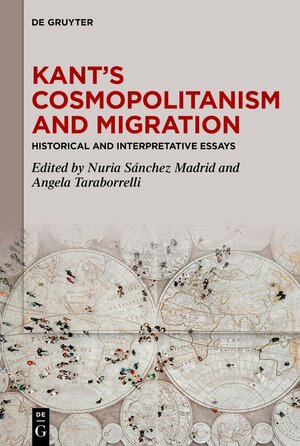
Kant’s Cosmopolitanism and Migration
Historical and Interpretative Essays
herausgegeben von Nuria Sánchez Madrid und Angela TaraborrelliBringing together essays from an international set of Kant scholars, most of whom have particular expertise in political and social theory, this volume explores the normative and empirical features of Kant’s engagement with cosmopolitan right and migration challenges. It provides early-stage researchers in particular with a broad overview of the inspiring features as well as the flaws stemming from Kant’s cosmopolitan accounts. It also makes a valuable contribution to current scholarship with approaches proposed by scholars coming from different continents. The first section of the volume – Normative Accounts of Kant’s Cosmopolitan Order – brings together essays that take stock of Kant’s cosmopolitan right as a normative theory capable of providing the contemporary political agenda with duties and legal demands towards precarious and vulnerable subjects and groups. The second section of the volume – Kant’s Cosmopolitanism: Between Past and Future – focuses on putting Kant’s cosmopolitanism in discussion with Modern sources of global mobility and contemporary theories of global political order (Rawls, Benhabib, Carens, Miller). The third section of the volume – Contemporary Migration Under the Lens of Kant’s Cosmopolitan Right – addresses the social drama of migration as a phenomenon that might be considered from a Kantian cosmopolitan standpoint, even if the contemporary world radically changed the conditions of belonging to a national state.




